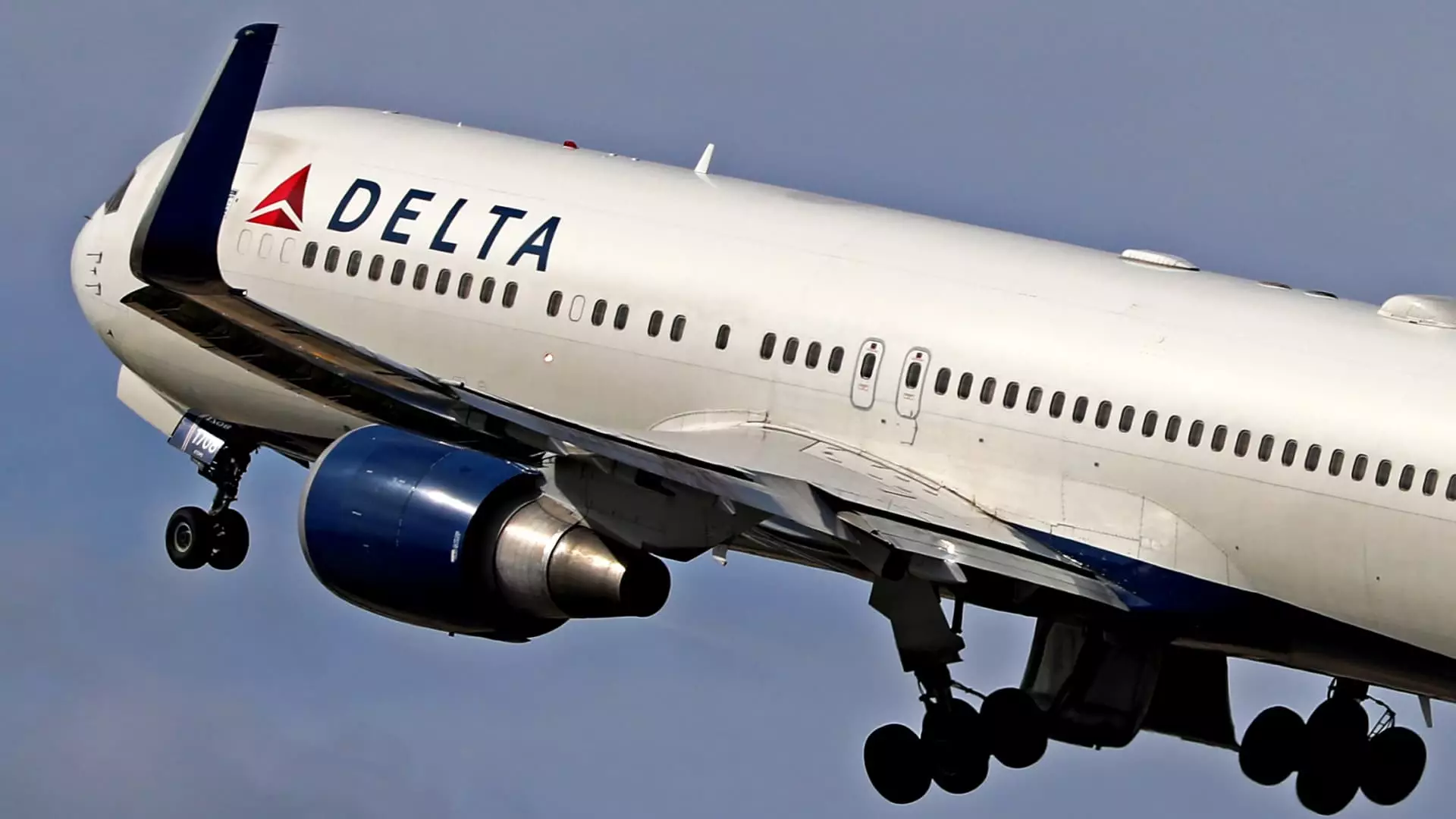The airline industry is no stranger to volatility, but the recent trends are raising serious red flags. We’ve witnessed a disheartening decline in airline stocks, driven primarily by a dimming consumer outlook. Reports suggest that consumer confidence is faltering, leading many expected travelers to hold off on plans, particularly for leisure travel. With the data from the Bank of America indicating a 7.2% drop in airline spending, it’s evident that something isn’t sitting right with the general public. When consumers are hesitant, especially at a time when they have ample options, it creates a snowball effect that can devastate the airline market.
Delta Airlines: A Case Study in Decline
Once the beacon of profitability in the American skies, Delta Air Lines has stumbled into rough territory following a major downgrade from Jefferies. Dropping its rating to “hold” and slashing its price target nearly in half spells a lack of faith from analysts who once viewed Delta as a stalwart of the industry. Although the airline has been focusing on boosting revenue through premium offerings and partnerships, the perceived need to cut guidance for FY 2025 signals that even high-end offerings cannot shield airlines from broader market realities. How much longer can Delta rely on its high-flyer services when the average traveler appears to be tightening their belt?
Burdens of Tariffs and Competitive Tensions
Competing in a sector already teetering under the pressures of economic unrest, tariffs seem to add an additional burden on airline stocks. As the threat of increased tariffs looms, the ripple effects will be felt by both consumers and companies alike. Airlines might increase ticket prices to absorb the costs, but this strategy could backfire. If higher prices drive away budget-conscious travelers, it could exacerbate the already declining stock performance. It’s a precarious balance, and the industry must tread lightly to avoid alienating its most price-sensitive segments.
The Cross-Border Travel Conundrum
Airlines like Air Canada that depend heavily on cross-border routes from the U.S. face additional challenges as travel patterns shift. The geopolitical climate, coupled with economic uncertainty, could be driving a wedge between travelers and their desire for international jaunts. A decline in international travel adds another layer of complexity for these airlines as they navigate an already tumultuous environment. Americans are reconsidering their travel plans, and this cautious mindset is significantly influencing cross-border tourism and airline revenues alike.
The Broader Economic Picture
The NYSE Arca Airline Index’s staggering 18% drop within the first quarter alone paints a grim backdrop for the heading into earnings season. It’s disconcerting that this sector has outperformed the S&P 500’s decline, indicating that the struggles of airline stocks are not merely a function of market volatility but an urgent signal of underlying weaknesses in consumer behavior and operational challenges. Businesses do not exist in a vacuum; they reflect the sentiments of the society they serve, and right now, that reflection seems bleak and uncertain.
As the earnings reports come rolling in, we can only brace ourselves for what they reveal. The trajectory may be clearer after Delta’s upcoming earnings report, but as it stands, the airline industry seems to be caught in a tempest, struggling against forces that threaten its very existence.

